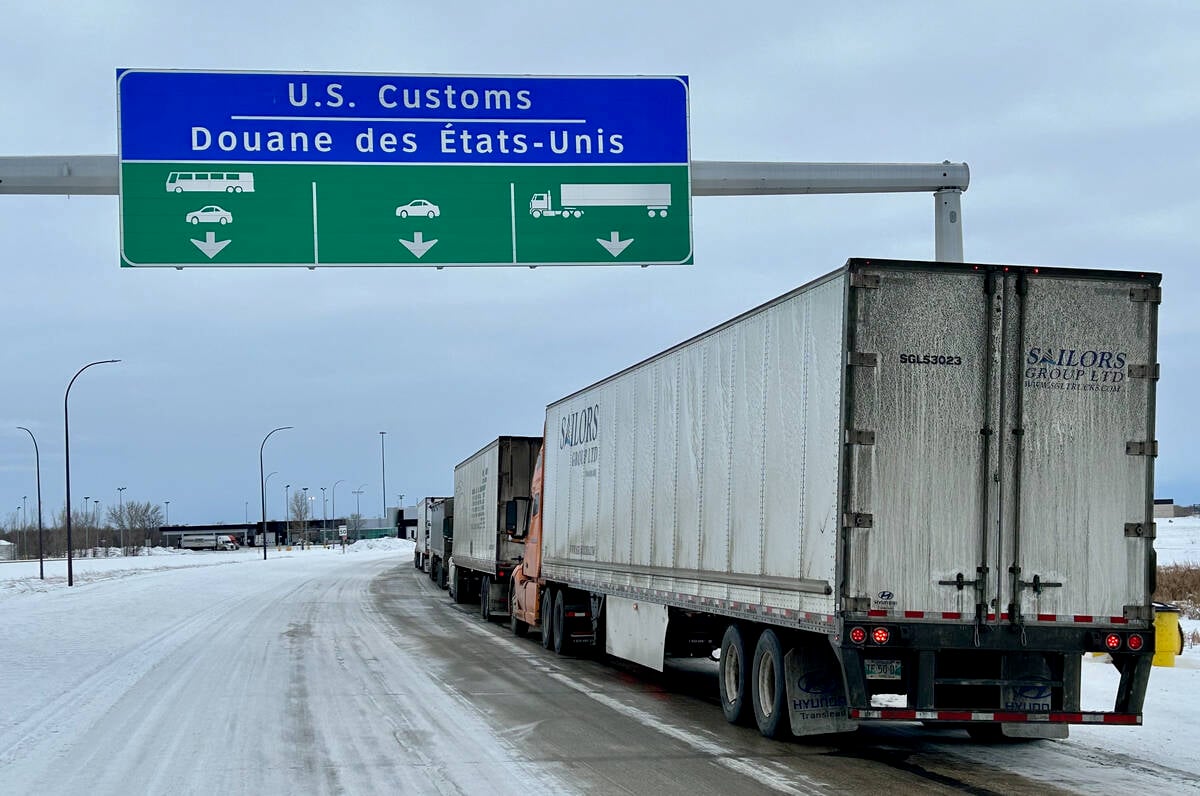The federal government last week announced it is supporting labeling of food containing genetically modified material.
Any labeling rules would be voluntary.
A representative of the grocery distributors said she hopes there is a national standard for GM labeling ready sometime next year.
“It is important that labels say and mean the same thing across Canada,” said Jeanne Cruikshank from Halifax, vice-president of the Canadian Council of Grocery Distributors. “Consumers want more information and this is a step toward that.”
The food industry quickly endorsed the Sept. 17 announcement that the grocery distributors and the Canadian General Standards Board are launching a consultation on how to create national standards for voluntary GM labeling.
Read Also

U.S. bill could keep out Canadian truckers
The Protecting America’s Roads Act, which was tabled in the U.S. House of Representatives at the beginning of October, would “rid the country of illegal immigrant commercial truck drivers and ineligible foreign nationals.”
“Farmers, as well as consumers, need reliable information if they are going to exercise their right of choice when it comes to what they grow and for whom,” said Canadian Federation of Agriculture president Bob Friesen in a statement from the CFA Ottawa office. He said the recently created standards for organic labeling are a precedent.
“Following the same process to establish real and verifiable definitions for a voluntary labeling system will offer both consumers and producers the means to make meaningful decisions about products of biotechnology.”
The Canadian Federation of Independent Grocers said it is important to give consumers the information about GM products “so they can make up their own minds.”
Critics of genetically modified foods scoffed at the announcement.
“This is less than half a measure,” said Michael Khoo, genetic engineering specialist with the Greenpeace Canada office in Toronto.
“This is only voluntary but beyond that, labeling is not the solution. If genetically modified food is unsafe, it should be taken off the shelves and there is no long-term evidence that it is safe.”
In fact, for anti-GMO activists, the issue of labeling is old news. They are stepping up attacks on sale of GM products, labeled or not.
This fall there are expected to be information pickets outside some supermarkets, warning consumers they may be buying genetically altered foods for their Thanksgiving table.
And last week, Greenpeace issued a report accusing Monsanto of ignoring domestic Ukrainian laws on food safety by shipping genetically engineered Canadian potatoes to that country in 1997 and 1998.
The NewLeaf potatoes were exported with the help of a Prince Edward Island government-supported company. The environmental group said it is a misuse of taxpayer dollars and a flouting of Ukrainian law.
“This case shows exactly why the world needs a strong biosafety protocol,” Greenpeace said. “Genetic engineering is a new technology with unknown risks.”
But in Canada, food industry representatives who quickly lined up behind the voluntary labeling initiative, insist GM foods must pass the same health and safety standards as other foods before they can be sold.
They see labels as another way to comfort consumers who want information.
“Canadian consumers have a right to make their food choices,” states a background question-and-answer sheet sent out last week to member companies by the Food and Consumer Products Manufacturers of Canada in case they faced media queries about the issue.
“We are confident, as is the government, that foods from biotechnology are safe. And we also have confidence in Canadian consumers (to) make their choices based on accurate and balanced information.”
















